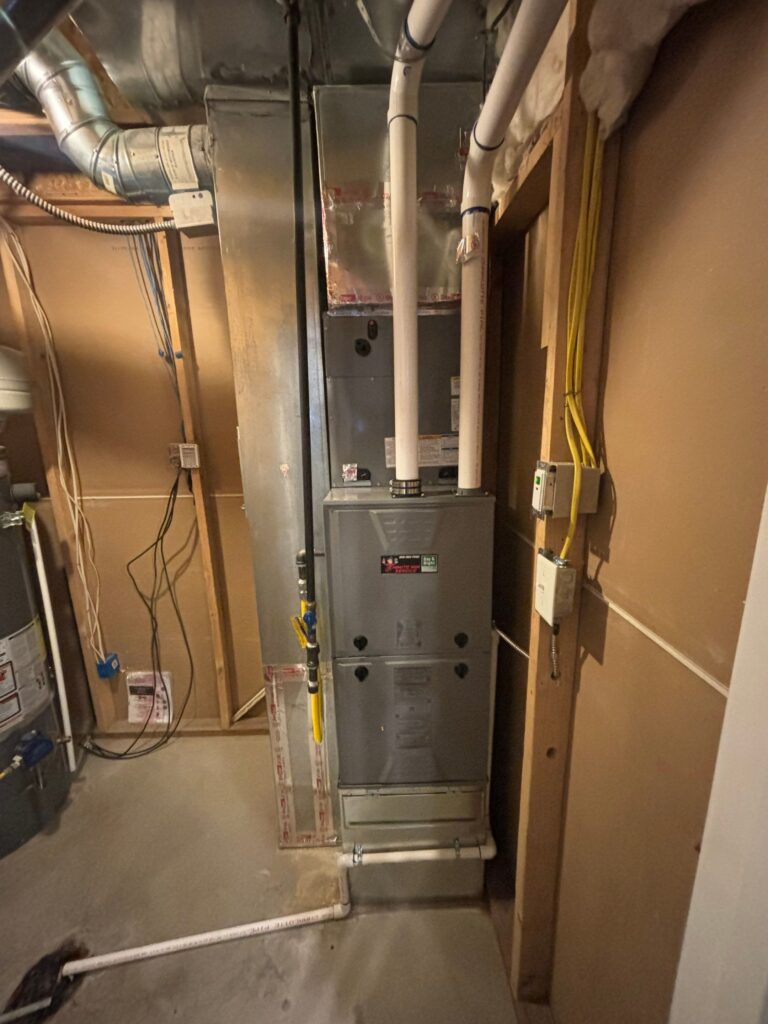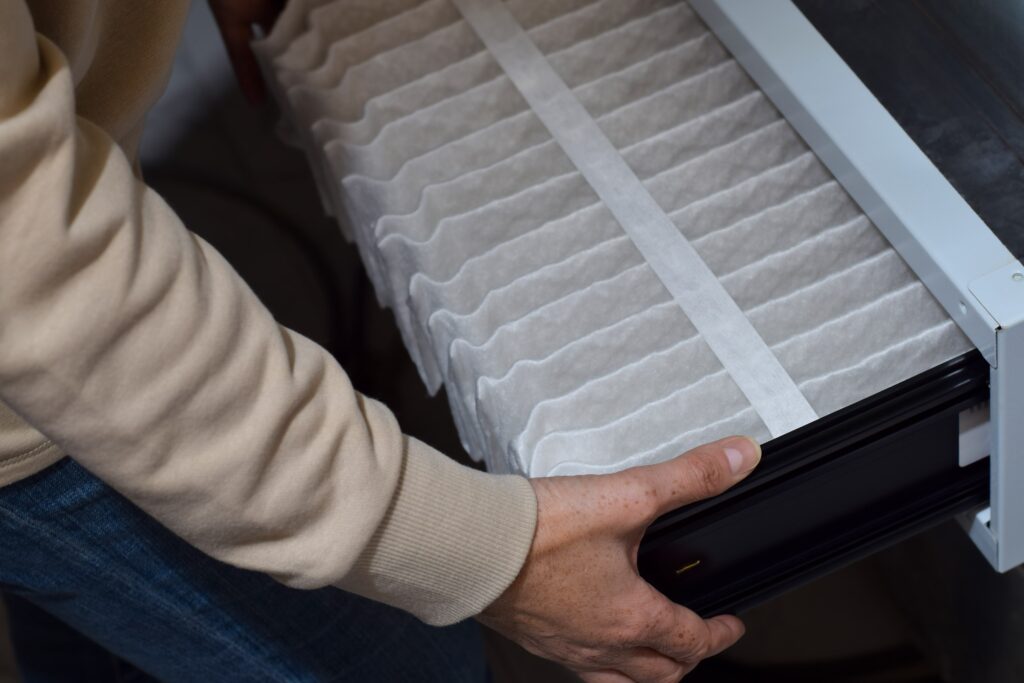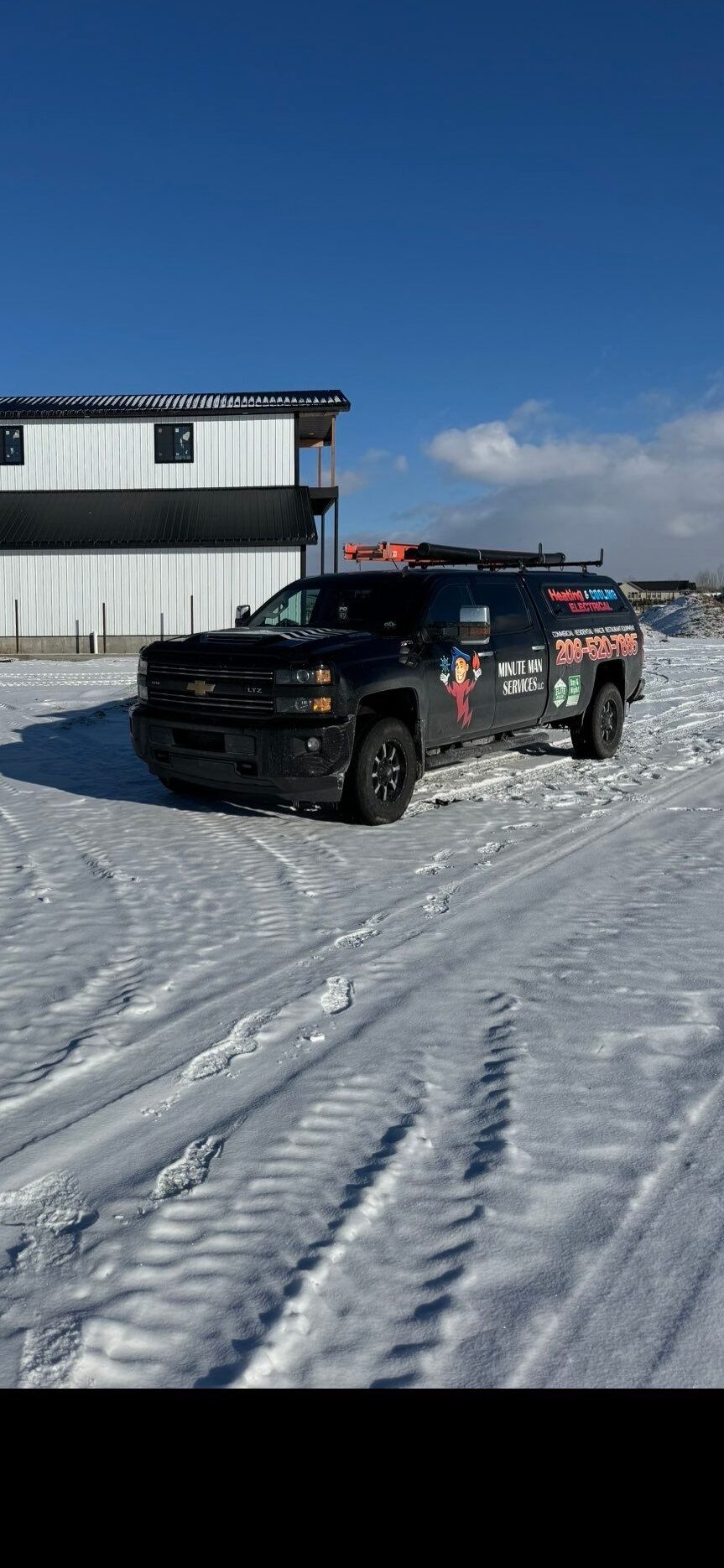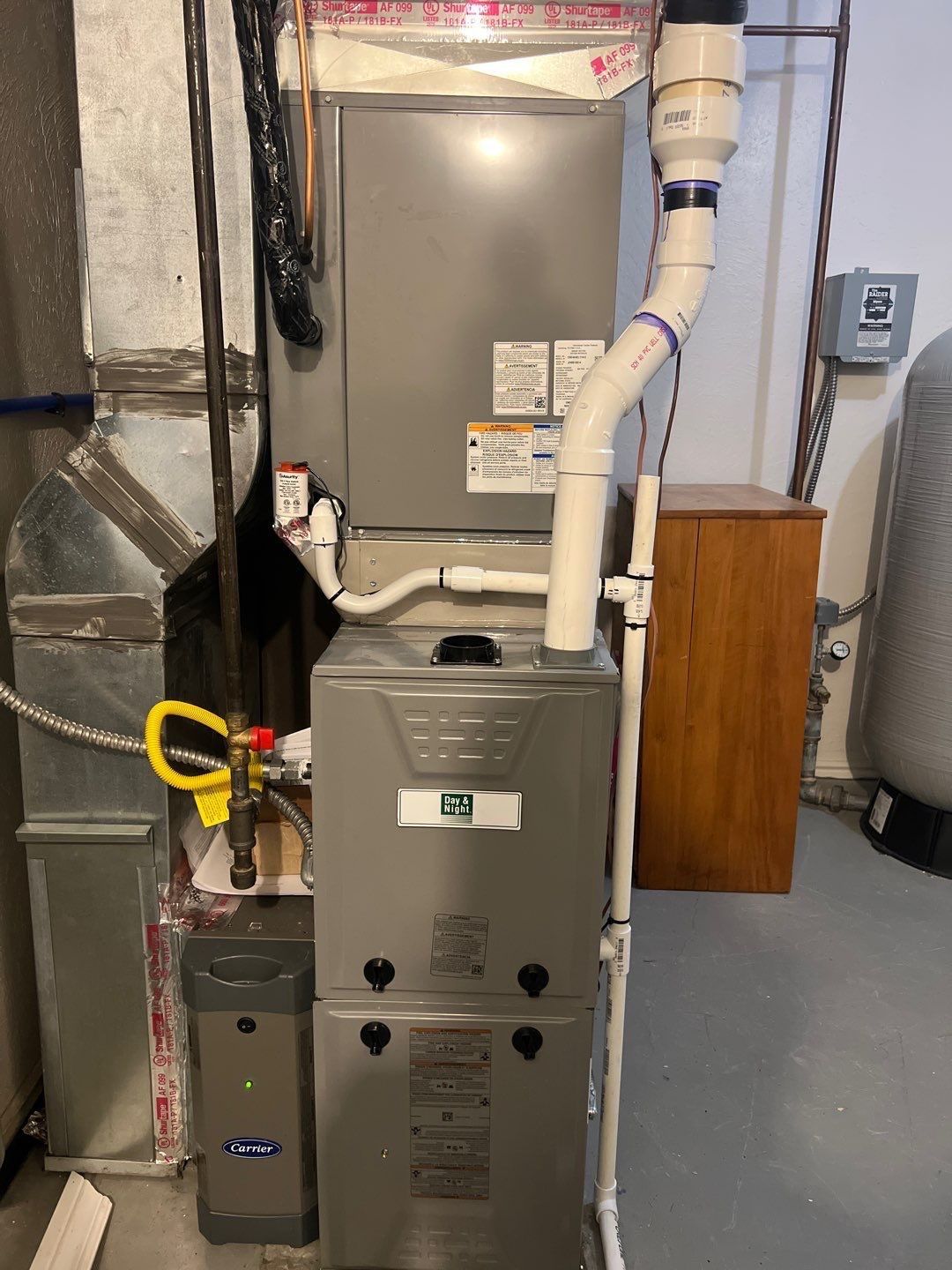Noises Your Furnace Makes and What They Mean
A furnace is a central part of life in Idaho Falls, providing essential warmth against our cold winters. During its normal operation, you might hear a gentle hum or the quiet click of the system turning on. These sounds are familiar and usually go unnoticed. However, when your furnace starts making a new, strange, or loud noise, it is a sign of a problem. These sounds are your heating system’s way of communicating that something is wrong.
Ignoring an unusual furnace noise is a significant risk. What starts as a minor annoyance, like a rattle or a whistle, can be an early warning for a much larger issue. Some sounds may indicate a simple problem, like a dirty filter. Others can warn of a critical failure that could lead to a complete system breakdown, expensive repairs, or even a serious safety hazard like a fire or a carbon monoxide leak.
Need help finding the warning signs your furnace needs servicing? Click here for more information.

As a homeowner, learning to identify these sounds can help you know when to act. Some issues can be resolved with simple maintenance, while others demand an immediate call to a professional. Understanding what your furnace is trying to tell you is the key to keeping your system running safely and efficiently. This knowledge helps protect your equipment, your home, and your family.
Loud Bangs or Booms
A loud banging or booming sound from your furnace is one of the most alarming noises you can hear. It should never be ignored. If this sound occurs when the furnace first kicks on, it is often a sign of delayed ignition. This happens when the furnace’s burners do not light immediately. Gas is allowed to build up inside the combustion chamber for a few extra seconds. When the gas finally does ignite, it does so with a small, contained explosion.
This mini explosion is what creates the loud bang. While it may sound like a single, dramatic event, the cumulative effect of these explosions is dangerous. This repeated stress can crack the heat exchanger. The heat exchanger is the component that separates the combustion gasses from the air that blows into your home. A cracked heat exchanger is a critical safety failure because it can allow deadly, odorless carbon monoxide to leak into your home’s air supply.
If you hear a loud bang or boom, you should shut off your furnace immediately. The problem could be caused by dirty burners, a faulty ignitor, or a gas supply issue. This is not a do it yourself repair. It requires a qualified HVAC technician. A professional from Minuteman Services can inspect the combustion system, clean the burners, and ensure the heat exchanger is intact and your family is safe.
Sometimes, a banging noise is not related to combustion. It can also be caused by your metal ductwork. As the furnace pushes hot air through the cold ducts, the metal expands. It can pop or bang as it changes shape. This is especially common with rectangular ductwork. While this is less dangerous than delayed ignition, it can still be a sign of undersized ducts or other airflow problems.
Screeching or Scraping Sounds
High pitched, metallic screeching or scraping noises are another immediate cause for concern. These sounds often point to a problem with moving metal components. If you hear a loud screech, the most likely culprit is a problem with the blower motor. The motor may have a worn out or failing bearing. This metal on metal grinding is a sign that the motor is struggling to turn.
This sound demands immediate action. If you let the furnace continue to run, the motor will eventually seize up completely. This will stop the circulation of air, and your furnace will shut down. Replacing a failed bearing is a complex repair; in many cases, the entire blower motor assembly will need to be replaced. This is a much more expensive repair than addressing the bearing at the first sign of trouble.
A scraping noise could also mean the blower wheel itself has come loose from the motor shaft. If this happens, the wheel can wobble and scrape against the inside of the blower housing. In a worst case scenario, a component could break off entirely, causing catastrophic damage to the inside of your furnace. Any time you hear a sound that resembles metal scraping against metal, you should turn off the system immediately and call a professional. An HVAC technician needs to open the unit, inspect the blower assembly, and secure any loose parts before they fail.
Need information on who to contact for these critical repairs? Click here for the HVAC team.
Whistling and Hissing
A high pitched whistling noise coming from your furnace or vents is almost always related to airflow. Your furnace is a system that “breathes” air in through the return vents and “exhales” warm air through the supply vents. When this airflow is restricted, the air is forced through a smaller opening, creating a whistle.
The most common cause of a whistling furnace is a dirty, clogged air filter. When the filter is full of dust and debris, the blower motor has to work much harder to pull air through it. This strain can cause a whistle and will make your furnace less efficient, driving up energy bills. It can also lead to the motor overheating and failing prematurely. The first step you should take is to check your air filter. If it is dirty, replacing it may solve the problem.

If a new filter does not stop the noise, the restriction could be elsewhere. You may have too many vents closed in your home. Closing vents in unused rooms seems like a good way to save money, but it can unbalance the system’s pressure and create whistling. Blocked or undersized ductwork can also be the cause. In some cases, a whistling or hissing sound could even indicate a leak in the ductwork, meaning you are paying to heat your attic or crawlspace.
A hissing sound can also be more serious. While rare, a hissing from the unit itself could be a gas leak. If you hear hissing and also smell rotten eggs, you must act immediately. Leave your home, call your gas company from a safe distance, and then call for emergency HVAC service.
Rattling and Thumping
Rattling sounds can have several causes, ranging from simple fixes to more complex issues. The most common cause of rattling is simply a loose access panel. The vibration from the furnace’s operation can cause the screws on the cover panels to loosen over time. This creates an annoying rattling vibration. This is something a homeowner can often fix by simply checking and tightening the screws on the furnace cabinet.
If the rattling seems to be coming from inside the unit, it could be a sign of debris in the blower. Or, it could be a more serious issue where a component is loose and shaking. A thumping or unbalanced, rhythmic sound often points to an issue with the blower wheel or motor. The blower wheel might be out of balance, or the motor assembly itself might have a loose mounting bolt.
A thumping sound is similar to an unbalanced washing machine. As the wheel spins, the imbalance causes a heavy vibration that shakes the unit. This constant vibration will not only get worse, but it will also put extreme stress on all the furnace’s components. It can loosen other parts, damage connections, and eventually lead to a major breakdown. If you hear a rattling or thumping that is not a simple loose panel, a technician should diagnose the problem.
Clicking, Buzzing, and Humming
Not all furnace noises are cause for panic. A clicking sound is often a normal part of operation. You may hear clicking as the furnace’s ignition system starts up, or as the relays on the control board engage. You might also hear a ticking or clicking from the metal ductwork as it expands and contracts. These sounds are usually brief and are not a problem.
However, repeated, constant clicking that is not normal is a sign of trouble. If the furnace clicks repeatedly but fails to ignite, it could be a sign of a faulty ignitor or flame sensor. The system is trying to start, failing, and then trying again. This is a problem that needs professional service.

A loud humming or buzzing noise is often an electrical issue. While the transformer and some motors create a very low, normal hum, a loud buzz is a warning. It can mean a capacitor is failing or the blower motor is struggling. A capacitor is a small part that gives the motor the extra jolt of energy it needs to start. When it fails, the motor may try to start but cannot, resulting in a loud hum. These are electrical components. For your safety, any buzzing or humming that is louder than usual should be inspected by a professional who is licensed for both HVAC and electrical work, like the team at Minuteman Services.
Your furnace is a complex machine with many moving parts, electrical components, and a combustion system. The noises it makes are a vital diagnostic tool. Listening to your system and reacting quickly to new sounds is the best way to prevent small issues from becoming expensive, dangerous emergencies. A rattling panel is a simple fix, but a banging sound points to a hazard. A scraping screech is a cry for help from a failing motor.
Never ignore a sound that is loud, sudden, or metallic. While it is tempting to hope a noise will go away on its own, this rarely happens. Professional maintenance is the key to a long, safe, and efficient life for your furnace. The experienced HVAC and electrical technicians at Minuteman Services have the training to accurately diagnose these sounds. We can tell the difference between expanding ductwork and delayed ignition. We can fix a failing motor before it breaks down completely, keeping your Idaho Falls home safe and warm.


